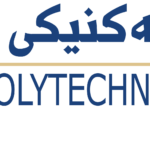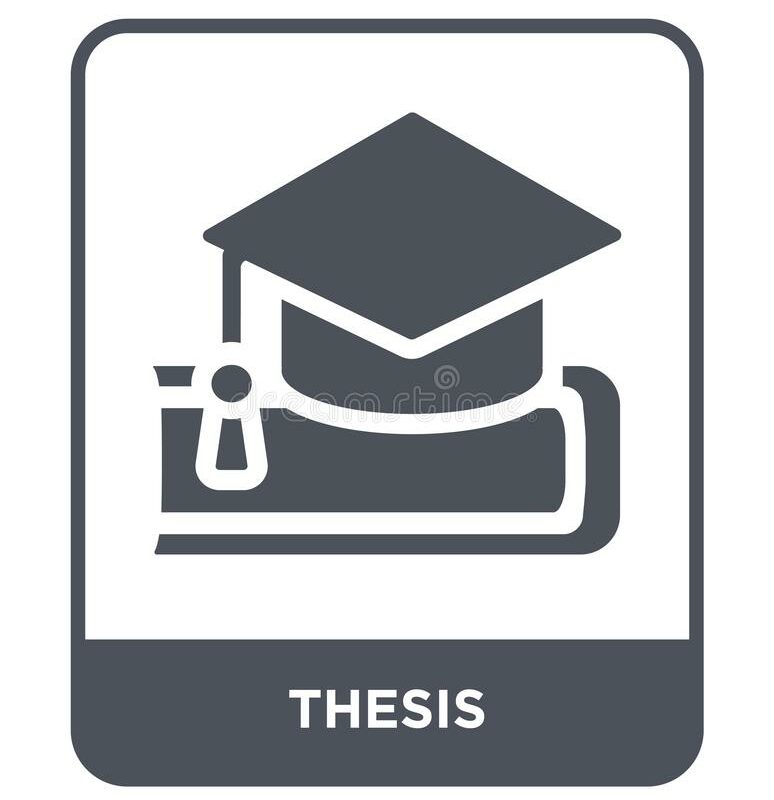- Lavin Luqman Khudhur
- [email protected]
- 0750 597 4567
- Lavin Luqman Khudhur
-
This study aims to examine the role of crisis management in managing and handling the financial crises (ISIS war crisis and COVID-19 pandemic crisis) on investment development. As well as the study examined the influence of the crises on investment development. An analytical and comparative study in the Kurdistan Region-Iraq. This study tries to determine the role of crisis management depending on the Mitroff’s-five stages model, depending on the regulation and decisions made during the occurrence of the crises. As well as the study compared the government’s reaction at each stage in both crises’ eras. In addition, the study tries to analyze and explore the reality of the investment situation during the occurrence of crises in the region, also comparing the crises' influence on each investment sector. A conceptual study theme was designed, and a set of hypotheses was developed. To verify the validity of the hypotheses. for that purpose, the financial analysis and SPSS version 28.0 was used. The study implemented the hypothesis on twelve investment sectors such as (trading, health, industry, service, tourism, transportation, education, agriculture, housing, sport, bank, and art) for ten years from 2012 until 2022.
The study reached a set of conclusions, the most important of which are the KRG has more effective and better crisis management to handle and manage the COVID-19 pandemic crisis than the ISIS war crisis on investment projects depending on the scientific criteria. Thus, the damage caused by financial crises on projects can be reduced. And the government can react quickly by applying scientific crisis management principles to minimize the bad effects of the crisis. On another hand, the crises themselves there were different from each other. ISIS is a war crisis and external threat, and the projects in the region had a bad drop. The focus of the KRG is on border protection, internal security, and war armies. Thus, the ISIS war crisis has a great negative influence on investment projects. capital in dollars dropped from the appearance of ISIS in the crisis stage by (65.20%). As well as the number of projects dropped from (108) to (70) projects. However, the COVID-19 crisis was a global epidemic spread all over the world but for the region it was an internal threat. Causing the delay or stoppage of the projects temporarily rather than that fall projects. Thus, The COVID-19 pandemic has a limited influence on investment projects. Thus, capital in dollars decreased slightly from the appearance of COVID-19 in the crisis stage by (18.76%). However, the number of projects increased slightly from (66) to (76) projects.
The researcher suggested that manage the crisis according to scientific criteria. And Implementing (Early warning system) to inform the projects of the occurrence of any unwanted events. And Installation of a response team (crisis management team) to prepare an organization to respond to potential crises.And attempting to rely on local products, and raw materials and strengthen local employees. Also, Diversify and develop investment sectors to avoid financial deficits during crises. Also, set a (strategic investment map) as a tool for investors to invest in that sector which is the most useful for the KR-I.
Keywords: financial crises, crisis management, investment, ISIS war crisis, COVID-19 pandemic crisis, KRG.
- Erbil Technical Administrative College
- Business Administration Techniques Department
- Business administration
- HAZIM KHALID HASSAN
- [email protected]
- 0750 449 5854
- دور القيادة الذكية في تعزيز مهارات التفكير الرياضي -رسالةماجستير - حازم خالد حسن
-
المستخلص
الإطار العام للدراسة: يتمثل الإطار العام للدراسة بمشكلة الدراسة التي حددت بإثارة تساؤلات عدة حول طبيعة العلاقة والتأثير بين المتغير المستقل (القيادة الذكية) والمتغير التابع (مهارات التفكير الرياضي) ولأجل ذلك تم تصميم مخطط فرضي؟ للدراسة عبر مجموعة من الفرضيات الرئيسية، ولأجل التاكد من صحة الفرضيات خضعت جميعها لاختبارات متعددة، واستخدمت الدراسة استمارة الاستبانة كأداة لجمع البيانات.
الهدف: تسعى الدراسة الحالية الى معرفة الاهمية الترتيبية لمتغيرات الدراسة وأبعادها، وتحليل علاقة الارتباط والتأثير والتباين للمتغير المستقل وأبعادها المتمثلة بـ (الذكاء العقلاني، الذكاء الشعوري، الذكاء الروحي) في المتغيرالتابع وأبعادها المتمثلة بـ (المهارات المعرفية، مهارات التفكير المركب،مهارات الاتصال الرياضي).
منهج الدراسة: انتهجت الدراسة المنهج الوصفي التحليلي، حيث تم وصف المتغيرات الرئيسية والفرعية وكذلك تحليل علاقات الارتباط والتأثير والتباين بين متغيرات الدراسة.وقد تمثل المجتمع الدراسة الجميع التدريسين في قسم الرياضيات فى كليات عدد من الجامعات الحكومية والبالغ عددهم (101) تدريسي، ومثلث عينتها أيضاً، وتمثل أقسام الرياضيات في كليات عدد من الجامعات الحكومية ميداناً للدراسة،وتم اختبار الفرضيات من خلال البرنامج الإحصائي (SPSS V.26).
الاستنتاجات والمقترحات: توصلت الدراسة الى مجموعة من الاستنتاجات الرئيسية منها وجود علاقة ارتباط معنوية موجبة بمستوى عالٍ بين القيادة الذكية و مهارات التفكير الرياضي على المستوى الكلي والجزئي وهذا يؤكد على مساهمة القيادات الذكية في أقسام الرياضيات في كليات عدد من الجامعات الحكومية في تعزيز مهارات التفكير الرياضي، فضلاً عن وجود تأثير ايجابي وبمستويات معنوية لمتغير القيادة الذكية في مهارات التفكير الرياضي.واقترحت الدراسة مجموعة من المقترحات أهمها ضرورة العمل للمحافظة على المستوى العالي لمهارات التفكير الرياضي من خلال تمتع رؤساء أقسام الرياضيات بالقدرة على التركيب والتلخيص وإعادة البناء من أجل امتلاك المهارات اللازمة لاداء مهامهم.
الكلمات المفتاحية: القيادة الذكية،مهارات التفكير الرياضي،المهارات المعرفية،مهارات التفكيرالمركب، مهارات الاتصال الرياضي، أقسام الرياضيات, الجامعات الحكومية .
- Erbil Technical Administrative Institute
- Management Information System
- Bussiness Admistration
- Aram Ibrahim Qanbar
- [email protected]
- 0750 445 3098
- ئارام_ابراهيم_قنبر 24-08-2023
-
The current study aims to analyze the relationship and impact between the occupational safety management system with its requirements (safety policy, risk management system, documents and information, training and efficient awareness, consulting and communication) and sustainable performance (economic performance, social performance, environmental performance) in Dana Gas in Sulaymaniyah city.
After reviewing a group of studies and literature, theoretical concepts were written and a model and hypotheses were built based on the requirements of the occupational safety management system and sustainable performance, and based on the nature of the study and the objectives it seeks to achieve, the analytical descriptive approach was relied upon. In order to collect data, the questionnaire was relied upon, and (150) questionnaires were distributed directly to all members of society represented by the heads of units and administrative departments, supervisors and employees of Dana Gas Company in the city of Sulaymaniyah, who numbered (146) individuals throughout the company, according to the company's data during Conducting the study. After sorting and checking the received forms directly, the number of valid questionnaires for analysis reached (127). The researcher used several statistical methods, including arbitrators and Cronbach's alpha, to ensure validity and reliability, and to test the normal distribution, independence, homogeneity of variance, the simple correlation coefficient, and the simple regression coefficient using the (SPSS-26) program. The results of the study showed that there is a positive correlation and effect between the variables and dimensions of the study. Based on the results and conclusions, a number of recommendations were made related to the need for the company to focus on the requirements of the occupational safety management system in order to achieve the sustainable performance of the researched company. Recommendations were also presented to other companies, institutions and departments, and proposals for future studies in this field.
Keywords: occupational safety management system requirements - sustainable performance - Dana Gas Company - Sulaymaniyah City - Kurdistan Region of Iraq.
- Erbil Technical Administrative College
- Business Administration
- Technical Business Administration
- Vian hussain baker
- [email protected]
- 0750 447 9665
- دور عمليات الادارة الاستراتيجية في تمكين العاملين
-
The current study aimed to analyze the impact of strategic management in the General Directorate of Electricity in Erbil Province on employee empowerment, including its dimensions (delegation of authority, participation in decision-making, psychological empowerment, work environment, and participation in teams). The study addressed a specific problem within its general framework, which raised questions about the relationship, impact, and variation between two main variables: the independent variable (strategic management) and the dependent variable (empowerment). To achieve this purpose, a theoretical framework was designed, including five main hypotheses (1. Testing the relationship hypothesis, 2. Analyzing the impact between study variables, 3. Testing the variation hypothesis, 4. Testing the differences hypothesis). To ensure the validity of these hypotheses, multiple tests were conducted, and a questionnaire was used as a data collection tool in the study. The study adopted a descriptive-analytical approach, describing the main and sub-variables and analyzing the relationships and impact between the variables.The study population comprised the General Directorate of Electricity in Erbil city, including nine directorates and their affiliated departments, with a total of 198 electrical engineers. A total of 150 questionnaires were distributed to the research participants, and 131 valid questionnaires were collected for analysis. The hypotheses were tested using various statistical analyses through the SPSS software version 22.
The study resulted in several key findings, including the discovery of significant positive relationships between the impact of strategic management and employee empowerment at both the overall and partial levels. This confirms the utility of strategic management in the researched directorates and its contribution to employee empowerment. The study also revealed a positive impact of strategic management on empowerment, supported by significant indicators at the overall level. Furthermore, the regression results indicated that each dimension of empowerment (delegation of authority, participation in decision-making, psychological empowerment, work environment, and participation in teams) contributed to this impact.
Based on the findings, the study proposes several important recommendations, including the need to enhance and activate the role of employees and involve them in all directorate activities, utilizing their abilities for the directorate's benefit, and leveraging their accumulated experiences in building future strategies and setting strategic goals.
Keywords: Strategic management, Empowerment, General Directorate of Electricity in Erbil.
- Shaqlawa Technical College
- Information technology
- Business Administration


